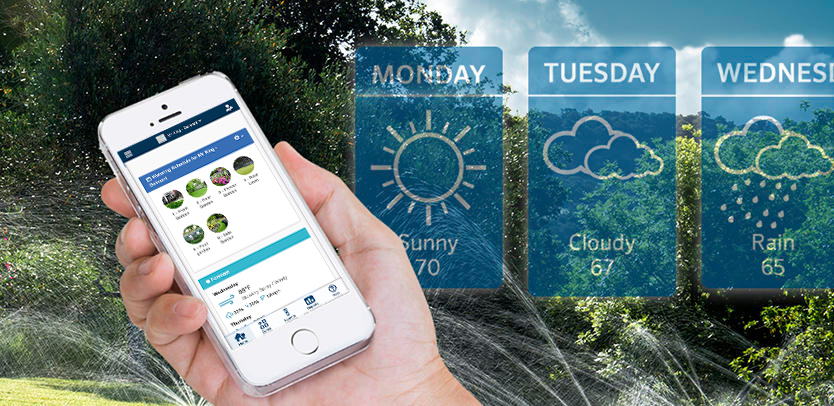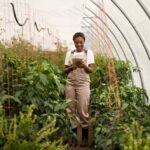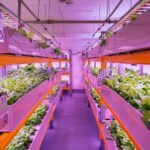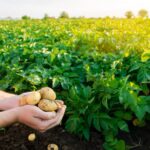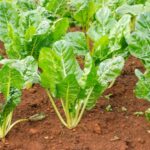Water scarcity is one of the most pressing challenges faced by South African farmers, especially in regions prone to droughts and unpredictable weather patterns. In such an environment, efficient water management is essential for maintaining sustainable agricultural practices. Enter smart irrigation apps—innovative solutions designed to optimize water usage, reduce costs, and ensure crops get the right amount of water at the right time. These apps are transforming the way farmers manage irrigation, helping them conserve one of their most valuable resources while boosting productivity.
The Importance of Smart Irrigation in South Africa
South Africa is one of the driest countries in the world, with agriculture heavily reliant on rainfall. However, the country’s agricultural industry is at the mercy of unpredictable weather patterns and prolonged droughts, making water management more crucial than ever. Irrigation systems, traditionally designed to water crops on a set schedule, can often waste water, especially if they’re not tailored to the specific needs of the crops or the current weather conditions.
Smart irrigation systems, powered by technology, address these issues by using real-time data to automate and optimize watering schedules, adjusting based on factors such as weather, soil moisture levels, and crop type. Smart irrigation apps bring these systems into the hands of farmers, allowing for more precise control and better resource management.
Key Features of Smart Irrigation Apps
The best smart irrigation apps come equipped with a variety of features that make water management easier, more efficient, and more cost-effective. Here are some of the most important features:
- Weather Forecast Integration: Smart irrigation apps often integrate weather forecasts to adjust watering schedules. By predicting rainfall, temperature, and humidity, these apps help farmers avoid over-irrigating during wet periods or under-irrigating during dry spells.
- Soil Moisture Sensors: Many apps are compatible with soil moisture sensors that measure the moisture content in the soil. These sensors provide real-time data, helping farmers water crops only when necessary, ensuring that water isn’t wasted.
- Remote Control and Monitoring: Farmers can monitor and control their irrigation systems remotely through their smartphones or tablets. This flexibility allows farmers to make adjustments anytime and anywhere, ensuring the system is running optimally.
- Water Usage Analytics: The apps often include analytics features that track water usage over time. This data can be used to analyze trends, identify areas of inefficiency, and make long-term improvements in irrigation practices.
- Customizable Irrigation Schedules: Smart irrigation apps can create irrigation schedules based on crop type, growth stage, and local weather conditions. This ensures that each plant gets the appropriate amount of water it needs at different stages of its growth.
Benefits of Smart Irrigation Apps for South African Farmers
- Water Conservation: The primary advantage of using smart irrigation apps is the significant reduction in water waste. By automating irrigation and using real-time data, these apps ensure that crops receive the right amount of water at the right time, conserving valuable water resources.
- Cost Savings: Reducing water usage directly translates to lower water bills and irrigation costs. By preventing over-watering, farmers can also reduce the amount of energy required to pump water, further reducing costs.
- Increased Crop Yields: Properly timed irrigation leads to healthier crops and higher yields. Smart irrigation systems ensure that crops are not stressed due to under-watering or over-watering, both of which can negatively impact growth and productivity.
- Enhanced Sustainability: Water is a finite resource, and by using smart irrigation apps, farmers can play an active role in promoting sustainability. Using water more efficiently helps preserve the environment and ensures that farming can continue in the long run.
- Improved Decision-Making: The data provided by smart irrigation apps allows farmers to make more informed decisions about water management, crop care, and resource allocation. With this information, farmers can optimize their farming practices and improve overall farm management.
- Time Efficiency: With automated irrigation systems and remote monitoring capabilities, farmers can save time. Instead of manually managing irrigation schedules, they can rely on their smart irrigation app to make adjustments automatically or with minimal input.
Top Smart Irrigation Apps for South African Farmers
Several smart irrigation apps are available to South African farmers, each offering different features that suit various farming needs. Below are some of the best apps for efficient water management:
1. Hydrawise
Hydrawise is a popular smart irrigation app that provides cloud-based irrigation control. It uses weather data to adjust irrigation schedules, ensuring that crops receive the correct amount of water based on local conditions. With features like soil moisture monitoring and remote control via smartphone, Hydrawise is a powerful tool for water conservation. It also tracks water usage, helping farmers optimize their irrigation systems over time.
2. CropX
CropX is a smart irrigation solution that combines soil moisture sensors with weather data to create highly accurate irrigation schedules. The app allows farmers to monitor their fields remotely, ensuring that water is only used when necessary. With CropX, farmers can reduce water usage while improving crop yields, making it an excellent choice for those seeking both sustainability and profitability.
3. Rachio
Rachio is an intuitive irrigation app that provides farmers with automated irrigation based on real-time weather forecasts and soil moisture data. The app integrates with various weather stations and sensors, allowing farmers to create customized irrigation schedules for different crops. Rachio’s ability to optimize watering schedules based on weather conditions makes it ideal for farmers in regions with fluctuating rainfall.
4. Valley Irrigation – Valley Insights
Valley Irrigation offers Valley Insights, a smart irrigation app that helps farmers manage irrigation systems efficiently. It provides remote monitoring and control, allowing farmers to adjust watering schedules in real time. The app also offers analytics on water usage and irrigation performance, giving farmers the data they need to optimize water use and improve overall irrigation efficiency.
5. Aquasave
Aquasave is a South African-based smart irrigation app that helps farmers optimize water usage through real-time data collection and analysis. The app uses soil moisture sensors to track soil conditions and adjust irrigation schedules accordingly. Aquasave also provides weather forecasts, helping farmers avoid over-irrigation during rainy periods.
As water scarcity continues to challenge South African farmers, adopting smart irrigation apps can make a significant difference. These apps offer a modern solution to age-old irrigation problems by providing real-time data, automation, and customizable features that optimize water use. By adopting smart irrigation practices, South African farmers can save water, reduce costs, and ultimately increase crop yields, all while contributing to the long-term sustainability of the agricultural sector. In a country where every drop counts, investing in smart irrigation technology is not just a wise business decision—it’s a step toward preserving resources for future generations.

